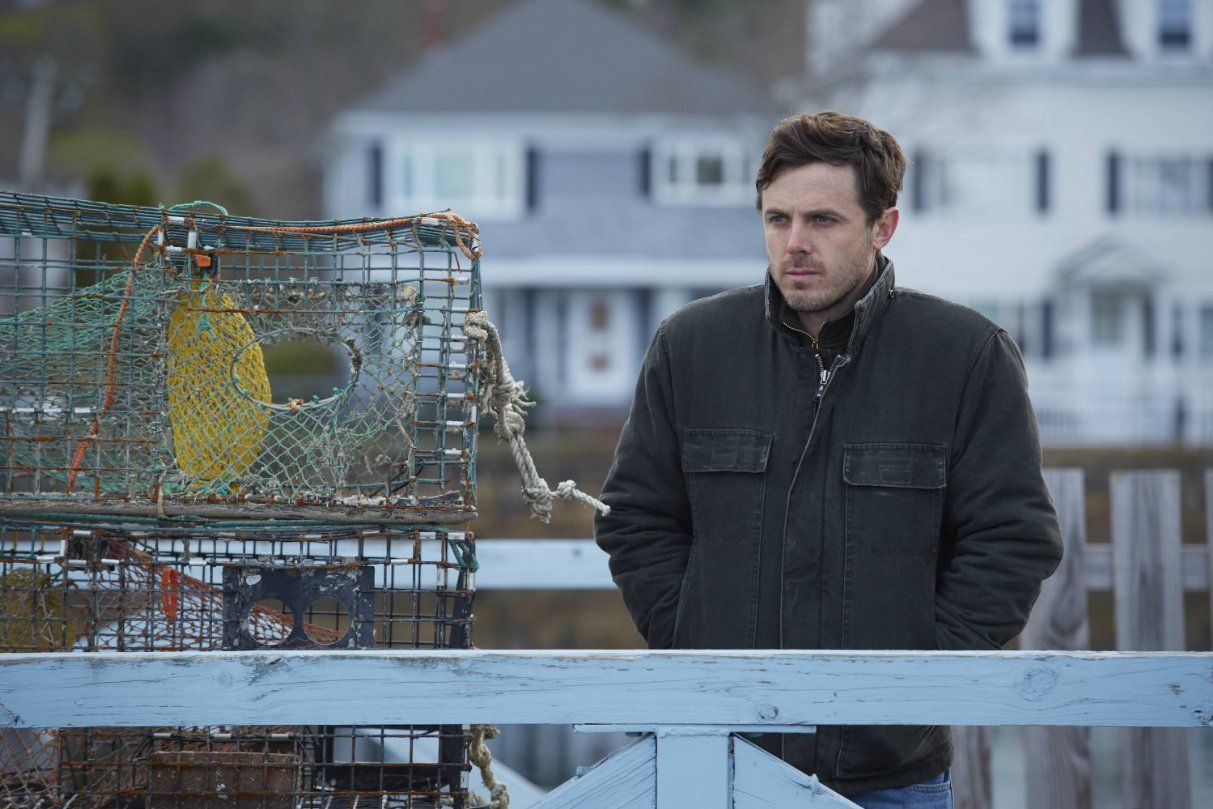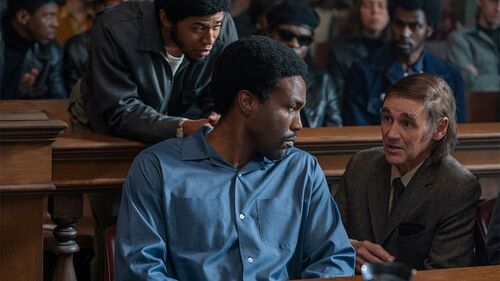
Manchester by the Sea
 Kenneth Lonergan’s Manchester by the Sea manages to be one of the funniest films of 2016 whilst wielding affecting moments of distress and heartbreak. The bleakness of this picture has been overemphasised. Expectations had been inflated. But Lonergan manages to milk a welcome brand of dark humour that doesn’t make light work of a crux wrapped in its powerful layered examination of grief.
Kenneth Lonergan’s Manchester by the Sea manages to be one of the funniest films of 2016 whilst wielding affecting moments of distress and heartbreak. The bleakness of this picture has been overemphasised. Expectations had been inflated. But Lonergan manages to milk a welcome brand of dark humour that doesn’t make light work of a crux wrapped in its powerful layered examination of grief.
Character-wise, Manchester by the Sea, narrows in on the cheerless reclusive Lee Chandler (Casey Affleck) who carries the burden of great personal tragedy. When we meet him, he is working as a caretaker for some apartment buildings in Boston and lives alone in a tiny basement. His reticent demeanour is matched by his contentment with isolation as he strives to avoid any human connection. Manchester by the Sea has its fair share of death, the first of which is Lee’s brother, Joe (Kyle Chandler) who we get to know better through some well-timed flashbacks. Joe’s death leaves Lee as the guardian of his 16-year-old son, Patrick (Lucas Hedges) who resides in their hometown of Manchester-by-the-Sea.
Patrick's mother Elise (Gretchen Mol) would have been the ideal choice of a guardian; in a world where she had not fallen the way of drugs and alcohol addiction. But Lee and Patrick get along well enough. It doesn’t take long to notice they are both comfortable on the same sardonic spectrum. Patrick almost represents a trip back in time for Lee, to a simpler period when they would fish on Joe’s boat under clear blue skies amidst merry banter. The present Lee, apart from being antisocial, will be noted for his depression and friendship with the bottle which leads to drunken brawls with strangers when some would have opted for the warmth of flirty girls.
As the layers to his character are peeled off, we learn he hasn't seen his ex-wife Randi (Michelle Williams) in years, after the devastating end to their marriage. People in community whisper about what exactly happened and when Lonergan eventually reveals to ass the pitch black icy hole at the heart of his film, it is in an overwhelmingly heart-breaking flashback, soaked in unrelenting pathos as the harrowing dirge inspired score grates our heart. Suddenly Lee starts to make sense. He is punishing himself, he blames himself for a disaster that befell his family and this close knit community.
The burden Lee carries is guilt and it is amplified any time he sets foot in Manchester. This fact puts a strain on the possibility of a happy ending for Lee and Patrick. Despite the obvious chemistry between the two, Lee doesn’t see himself staying in Manchester and tells Patrick they would eventually have to move over to Boston, leaving behind the teenager’s friends, school, rock band, hockey and the two girlfriends he juggles. But in the short term, Lee contemplates compromise and extends his stay in Manchester, affording him the chance to parent a troubled teenager. This mostly involves handing out lunch money and driving Patrick to and from his various hobbies as well as the occasional expletive snaps.
It doesn’t get very mushy between the two, not even in the immediate aftermath of the bereavement. It’s just a lot of joyous wit and deadpan dialogue milked out of the most mundane of moments. It can almost be read as Lonergan’s mode of dealing with grief giving he appears to detach himself from key moments of the grieving process. Consider the way he films Patrick receiving the news of his father’s death, captured from the perspective of onlookers some 50 meters away or Patrick going to the morgue to see his father’s body in what is a hilariously brief moment. Even the funeral is handled in a quick montage interrupted by the vibration of Patrick’s phone during the service. One would think he detested his dad or something.
But Lonergan affords some emotional release for his characters, some we warm up to and welcome, one other fills us with utter despair. Some of the anguish here is just too heavy to bear. Lee’s immediate reaction to his tragedy is the pinnacle of bleak for cinema in 2016. For, Patrick, when his moment comes, it draws on something routine and connects to a mundane conversation he has about wanting a quick burial for his dad. But its winter and the ground is too hard so his dad has to remain in the morgue freezer till the spring. That’s a thought that comes to unnerve Patrick.
Then there’s William’s Randi who acts her ass off in her one moment of vulnerability; truly vivid, so manic, so sad. It presents and interesting contrast with Affleck’s performance which has to do with the subtle physical cues that enhance his play on isolation. It’s a shame we don’t get enough of Randi given her strong connection to Lee. She has remarried, is expecting a baby but that’s the extent to her agency. But just like the way we see Lee avoid eye contact with Randi and basically brush her off, Loneragan isn’t too keen on sinking his teeth into the layers of emotion bundled in their dynamic.
Nonetheless, there is a less-is-more approach here that works effectively for Manchester by the Sea. Lonergan spends a lot of time throwing the enjoyable wry humor around but when he turns up the drama, the film heads for a nexus of resignation. Even as spring beckons and the sheer winter chills lessen, the tone remains consistently somber, the weight of the central tragedy barely slackens as the multitude of emotions permeate and you begin to wonder if Lonergan drew on a well of personal melancholia for this story.
-
By: Delali Adogla-Bessa/delalibessa@yahoo.com/Ghana


